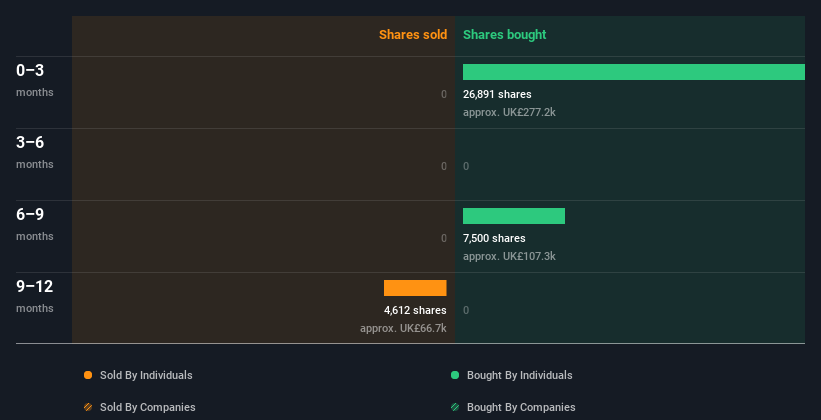Despite recent gains, Prudential plc (LON:PRU) insiders are still down US$40k after purchasing last year
Some of the losses seen by insiders who purchased US$386k worth of Prudential plc (LON:PRU) shares over the past year were recovered after the stock increased by 4.8% over the past week. However, the purchase is proving to be an expensive wager as insiders are yet to get ahead of their losses which currently stand at US$40k since the time of purchase.
Although we don't think shareholders should simply follow insider transactions, logic dictates you should pay some attention to whether insiders are buying or selling shares.
Check out our latest analysis for Prudential
Prudential Insider Transactions Over The Last Year
The Independent Non-Executive Director Sock Koong Chua made the biggest insider purchase in the last 12 months. That single transaction was for UK£107k worth of shares at a price of UK£14.31 each. That means that an insider was happy to buy shares at above the current price of UK£10.06. While their view may have changed since the purchase was made, this does at least suggest they have had confidence in the company's future. We always take careful note of the price insiders pay when purchasing shares. It is generally more encouraging if they paid above the current price, as it suggests they saw value, even at higher levels.
Over the last year, we can see that insiders have bought 34.39k shares worth UK£386k. But they sold 4.61k shares for UK£67k. In total, Prudential insiders bought more than they sold over the last year. The average buy price was around UK£11.21. This is nice to see since it implies that insiders might see value around current prices. You can see a visual depiction of insider transactions (by companies and individuals) over the last 12 months, below. If you want to know exactly who sold, for how much, and when, simply click on the graph below!
There are always plenty of stocks that insiders are buying. So if that suits your style you could check each stock one by one or you could take a look at this free list of companies. (Hint: insiders have been buying them).
Insiders at Prudential Have Bought Stock Recently
Over the last quarter, Prudential insiders have spent a meaningful amount on shares. Not only was there no selling that we can see, but they collectively bought UK£278k worth of shares. This could be interpreted as suggesting a positive outlook.
Insider Ownership
Another way to test the alignment between the leaders of a company and other shareholders is to look at how many shares they own. We usually like to see fairly high levels of insider ownership. Prudential insiders own about UK£29m worth of shares. That equates to 0.1% of the company. We've certainly seen higher levels of insider ownership elsewhere, but these holdings are enough to suggest alignment between insiders and the other shareholders.
What Might The Insider Transactions At Prudential Tell Us?
The recent insider purchases are heartening. And the longer term insider transactions also give us confidence. Insiders likely see value in Prudential shares, given these transactions (along with notable insider ownership of the company). So while it's helpful to know what insiders are doing in terms of buying or selling, it's also helpful to know the risks that a particular company is facing. For example - Prudential has 1 warning sign we think you should be aware of.
If you would prefer to check out another company -- one with potentially superior financials -- then do not miss this free list of interesting companies, that have HIGH return on equity and low debt.
For the purposes of this article, insiders are those individuals who report their transactions to the relevant regulatory body. We currently account for open market transactions and private dispositions, but not derivative transactions.
Have feedback on this article? Concerned about the content? Get in touch with us directly. Alternatively, email editorial-team (at) simplywallst.com.
This article by Simply Wall St is general in nature. We provide commentary based on historical data and analyst forecasts only using an unbiased methodology and our articles are not intended to be financial advice. It does not constitute a recommendation to buy or sell any stock, and does not take account of your objectives, or your financial situation. We aim to bring you long-term focused analysis driven by fundamental data. Note that our analysis may not factor in the latest price-sensitive company announcements or qualitative material. Simply Wall St has no position in any stocks mentioned.

 Yahoo Finance
Yahoo Finance 
